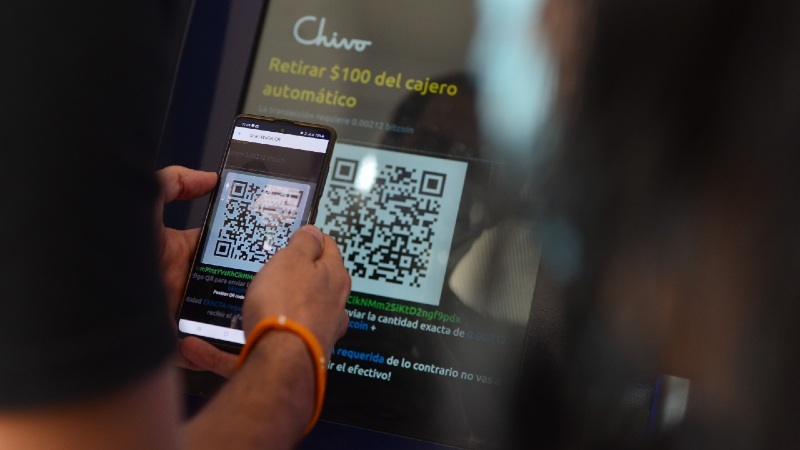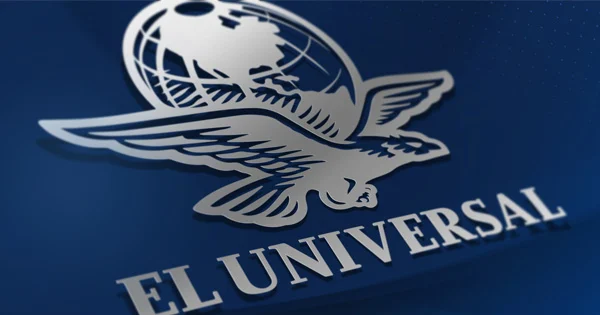Some take the Chivo wallet, others test the volatility of Bitcoin

Some citizens suspect that they do not charge commissions for sending remittances through the wallet operated by the government
The $30 bonus earned by Salvadorans who downloaded the Chivo app owned by Chivo SA. de CV. A company built with public money, it cannot be converted into actual dollars, unless some bitcoin enthusiast buys it.
And so does Édgar Iraheta, who has a business in Sensuntepeque, 80 kilometers northeast of the capital, San Salvador, in the Cabañas department, where he already accepts transactions with “Chivo Wallet”. He has already notified his contacts via WhatsApp.
“What I did is help people make the process easier, the procedure, because in some places they haven’t updated yet, they haven’t downloaded the app and they don’t accept this form of payment. What I do is buy people bitcoin,” and give them the equivalent in cash, he explains.
See: Argentine Firm Linked to Bitcoin App, Clarín Says
Vanessa Rodriguez, 20, comes to work. After installing “Chivo” with Édgar’s help, she transferred the equivalent of $25 to him and he handed her the cash. She usually also receives remittances, so she has already informed her family abroad.
“I don’t know how much extra they paid there, I think if they put 100 (dollars) they will charge 8 more dollars. If they are going to be charged there, let them send me bitcoin.”
Volatility experience
On the other hand, Deysi Méndez, 52, has already received $30 of bitcoin on her cell phone, and she just got a quick lesson in volatility.
“Now (I have) 29.36…in the morning I was 30, and now it’s actually gone down a bit. Hopefully it’ll come back. That’s why I’m not going to spend all of this because I know it’s going to go up little by little,” he says.
There are many people who receive remittances every month. Can you imagine in a year how much would be saved if it was 20 (percent commission) each time? “I think it’s OK, that in the future little by little, for something good, it can work,” says Juan Antonio Alfaro, Desi’s husband and waiter, 51.
To convert your bitcoins into dollars or buy more bitcoins, the government has enabled 200 Chivo ATMs across the country. And he wants his “chivo wallet” to also be a way for Salvadorans living abroad to send remittances to their relatives, presumably without paying remittance agency fees.
vital transformations
25-year-old David also lives in Sensuntepeque. In his neighborhood, the majority of neighbors receive remittances from their relatives in the United States. Your cousin just sent you a shipment. You have been told that now, with Bitcoin, you will not pay commissions anymore. “Let’s see, hopefully that’s true,” he says.
Read also: Computer systems experts say App Chivo wasn’t ready for a large-scale launch
This week, El Salvador became the first country to legalize Bitcoin as legal tender on par with the dollar, a currency that has been in the El Salvadorian economy for 20 years.
Cabañas is one of the poorest provinces in the country. Its population of 42,000 is devoted primarily to subsistence farming and livestock farming.
But among its narrow streets and tiled or zinc-roofed homes, money transfers abound. According to official data, between January and July 2021, Cabanas received about $200 million from abroad.
Houses of noble materials and crowded shops without evidence of their quality of life improving.
Transfers “My cousin sent me, and yes, the bank paid me something here. Now with a bitcoin ATM here, well, it says it’s supposed to be interest-free. Hopefully that’s true,” David explains, while being supported By an official to understand the Chivo ATM device installed next to the main square in the city.
He advised his cousin to send a “Chivo Wallet”. Finally, it turns out. “The transaction is fast, the money fell right away, I came to withdraw it here quickly,” he explains. Although he does not say how much he got.
Remittances from Salvadorans in the diaspora—25 million of them in the United States—represent 22% of the country’s GDP. In 2020, they totaled $5918 million.
More on the topic:
Promotora Chivo: “At the moment it’s a failure because it was the catch of the week”
The cost of adopting Bitcoin for Salvadorans is $238.3 million
‘You can’t risk your family’s food,’ economist Luis Membrino says of bitcoin use.




